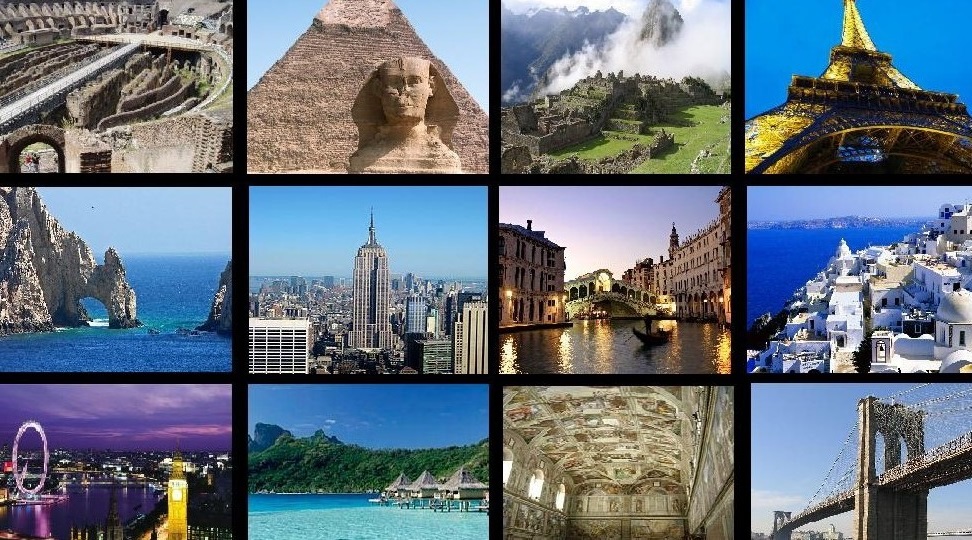
Best Cultural Travel Destinations. Welcome, dear readers, to the enchanting world of cultural travel. In a realm where the past and present intertwine, where traditions and history come alive, cultural travel offers a gateway to a tapestry of experiences like no other. In this blog post, we embark on a journey to explore the significance of cultural travel and unveil the hidden gems of the world’s “Best Cultural Travel Destinations.” So, pack your curiosity and join us on this exhilarating voyage!
Table of Contents
Why Cultural Travel Matters

Best Cultural Travel Destinations is more than just a vacation; it’s a transformative journey that has the power to broaden horizons and enrich our lives in profound ways. In this section, we will delve into the significance of cultural travel and unveil the myriad of enriching experiences it offers.
Broadening Horizons Cultural travel is like a window to the world, allowing us to peek into the lives, traditions, and histories of diverse cultures. It offers us a chance to step outside our comfort zones and embrace the unfamiliar. By immersing ourselves in different cultures, we gain a broader perspective on life, challenge our preconceptions, and develop a deeper understanding of the global community.
Enriching Experiences One of the most remarkable aspects of cultural travel is the treasure trove of enriching experiences it provides. From savoring exotic cuisines to witnessing age-old rituals and celebrations, every moment becomes a chance to learn and grow. Whether it’s exploring ancient temples in Asia, dancing to the rhythms of South America, or admiring the artistry of Europe, cultural travel allows us to create memories that last a lifetime.
Introducing “Best Places to Travel for Cultural Experience“ As we continue our exploration of cultural travel, keep an eye out for the “Best Places to Travel for Cultural Experience.” These destinations are handpicked for their ability to immerse you in the heart and soul of a culture, offering experiences that are nothing short of extraordinary. So, let’s embark on this journey of discovery and embrace the world’s cultural riches.
The Best Places to Travel for Culture
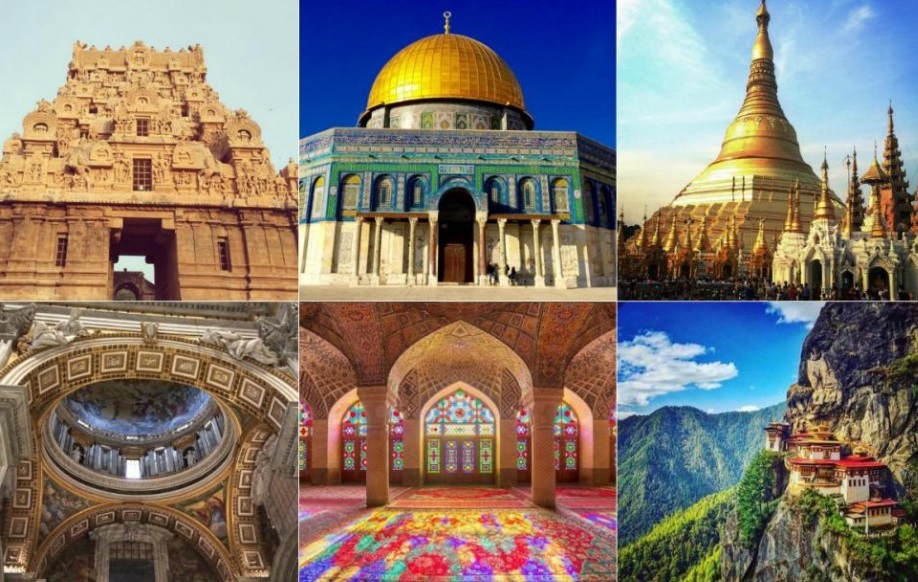
When it comes to embarking on a Best Cultural Travel Destinations, the world is a vast and diverse playground. This section will illuminate the incredible diversity of cultural experiences waiting to be explored across the globe. From ancient traditions to modern marvels, these destinations are known as the “Best Places to Travel for Culture.”
Discovering Diversity Culture is a kaleidoscope of human expression, and our planet is adorned with an array of vibrant cultures waiting to be discovered. Each culture carries its own unique traditions, art forms, languages, and customs, making the world a rich tapestry of human experiences. Cultural travel allows us to immerse ourselves in this diversity, fostering a deeper appreciation for the beauty of our differences.
Specific countries and regions As we set out on this Best Cultural Travel Destinations journey, we’ll venture into specific countries and regions renowned for their rich cultural heritage. These places offer immersive experiences that are nothing short of extraordinary. From the historic streets of Kyoto, Japan, to the colorful markets of Marrakech, Morocco, and the bustling neighborhoods of New Orleans, USA, there is a world of culture waiting to be explored.
Incorporating “Best Places to Travel for Culture” Throughout this section, you will encounter the keyword “Best Places to Travel for Culture” as a guiding light to the most culturally enriching destinations on our planet. So, let’s pack our bags, open our hearts to new experiences, and embark on a journey to these incredible cultural havens.
Europe: A Cultural Haven
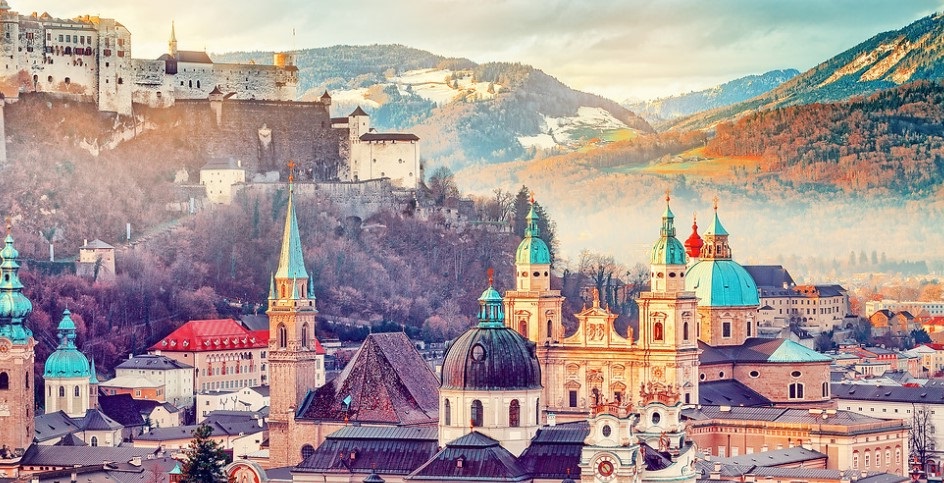
In the realm of Best Cultural Travel Destinations, Europe stands as a shimmering gem, boasting an abundance of cultural treasures that span centuries. In this section, we will embark on a captivating journey through Europe’s enchanting landscapes, historic cities, and world-renowned art galleries. Our quest will lead us to iconic destinations such as Paris, Florence, and Barcelona, each of which epitomizes the essence of cultural exploration. Along the way, we’ll delve into the significance of “Best Places to Travel for History and Culture.”
Historic Cities and Art Galleries Europe’s streets are a living museum, where each cobblestone tells a story and every building whispers of the past. As cultural enthusiasts, we’ll have the privilege of exploring historic cities that have witnessed the rise and fall of empires, such as Rome and Athens. Within these cities, we’ll discover art galleries that house the masterpieces of the greatest artists in history, from the Louvre in Paris to the Uffizi Gallery in Florence.
Iconic Destinations Our journey will take us to some of Europe’s most iconic destinations, where history and culture intertwine seamlessly. In Paris, we’ll stand beneath the Eiffel Tower and stroll along the Seine, captivated by the city’s artistic spirit. Florence will enchant us with its Renaissance heritage, inviting us to marvel at Michelangelo’s David and the stunning architecture of the Florence Cathedral. Meanwhile, Barcelona’s architectural wonders by Antoni Gaudí will leave us in awe of the city’s creativity.
“Best Places to Travel for History and Culture” Throughout our exploration of Europe, we will repeatedly encounter the keyword “Best Places to Travel for History and Culture.” This phrase serves as our guiding star, leading us to destinations that promise not only a glimpse into Europe’s rich history but also an immersion in its vibrant cultural tapestry. So, let’s continue our journey through Europe, where every corner reveals a new chapter in the captivating story of human civilization.
Asia: Where Tradition Meets Modernity
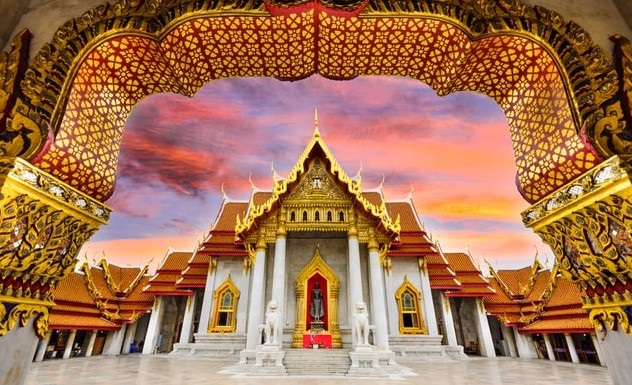
Asia, the world’s largest and most diverse continent, is a captivating fusion of ancient traditions and modern innovation. In this section, we will dive deep into the vibrant tapestry of Asian culture, where the past harmoniously coexists with the present. Our journey will lead us to enchanting destinations like Kyoto, Jaipur, and Beijing, all of which epitomize Asia’s unique blend of history and culture. Along the way, we’ll embrace the essence of “Best Places to Travel for History and Culture.”
A Tapestry of Tradition and Modern Life Asia is a place where tradition dances gracefully alongside the modern world. It’s a land of contrasts, where ancient temples stand tall amidst skyscrapers and age-old customs find harmony with contemporary lifestyles. Our cultural voyage through Asia will allow us to witness this mesmerizing fusion up close.
Destinations That Define Asia’s Culture Our journey begins in Kyoto, Japan, a city that encapsulates the elegance of Japanese culture. Here, we’ll explore serene temples, stroll through bamboo forests, and partake in traditional tea ceremonies. Next, we’ll journey to Jaipur, India, a vibrant tapestry of colors where palaces and forts narrate tales of royalty and grandeur. Finally, our path leads to Beijing, China’s capital, where the Great Wall and the Forbidden City stand as testaments to China’s rich history.
“Best Places to Travel for History and Culture” As we traverse Asia, we’ll encounter the guiding keyword, “Best Places to Travel for History and Culture.” This phrase will direct us to destinations that seamlessly blend historical significance with cultural immersion, ensuring that our journey through Asia is nothing short of awe-inspiring. So, let’s continue our exploration of Asia, where every moment is a testament to the enduring beauty of tradition and the excitement of modernity.
South America: A Tapestry of Traditions
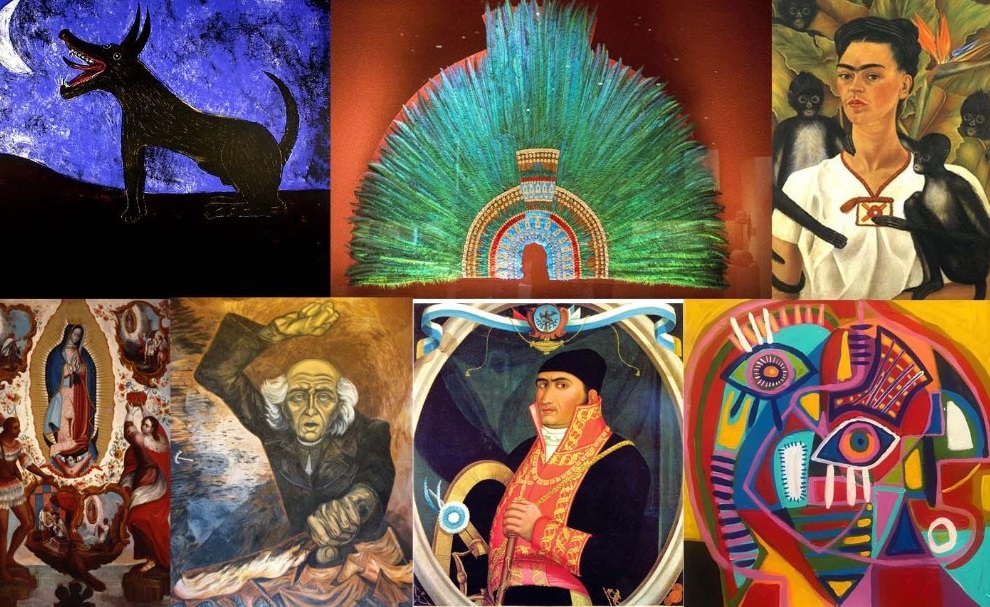
South America, a continent of captivating contrasts, invites us to uncover its rich tapestry of cultures, dances, and cuisines. In this section, we embark on a vibrant journey through South America, where diverse traditions weave together seamlessly. Our exploration will lead us to enchanting destinations like Cusco, Salvador, and Buenos Aires, all of which epitomize the continent’s historical and Best Cultural Travel Destinations. Throughout this section, we’ll emphasize the significance of “Best Places to Travel for History and Culture.”
A Mosaic of Cultures, Dances, and Cuisines South America is a tapestry woven with the threads of indigenous cultures, colonial history, and contemporary creativity. It’s a land where the rhythm of samba meets the melodies of Andean flutes and where flavors from the Amazon rainforest mingle with Argentine steakhouses. Our journey promises an immersive experience of these vibrant cultures, dances, and cuisines.
Destinations That Enchant the Soul Our adventure begins in Cusco, Peru, the heart of the Inca Empire, where ancient ruins stand in stark contrast to the bustling markets and vibrant festivals. Next, we’ll explore Salvador, Brazil, a city known for its Afro-Brazilian culture, colorful streets, and mesmerizing capoeira performances. Finally, we’ll immerse ourselves in the passionate spirit of Buenos Aires, Argentina, where tango music fills the air and historical neighborhoods tell tales of the past.
“Best Places to Travel for History and Culture” Throughout our South American journey, we’ll emphasize the keyword “Best Places to Travel for History and Culture.” This phrase serves as our compass, guiding us to destinations that offer not only a glimpse into South America’s rich history but also an opportunity to become a part of its living, breathing cultural tapestry. So, let’s continue our exploration of South America, where every step reveals the magic of tradition and the vibrancy of culture.
How to Immerse Yourself
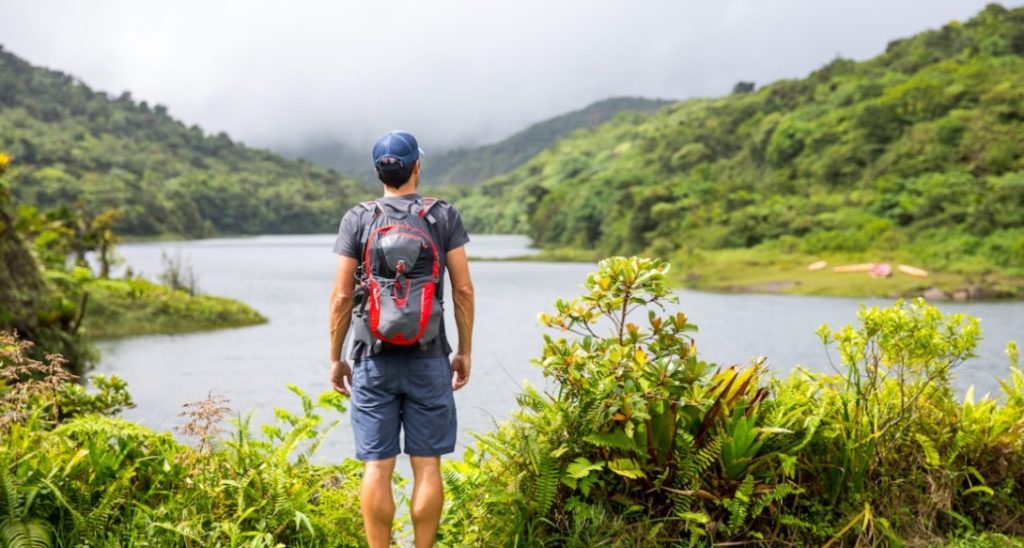
Best Cultural Travel Destinations is not just about visiting a place; it’s about becoming a part of it, immersing yourself in its essence, and creating memories that last a lifetime. Here are some invaluable tips on how to immerse yourself in the local culture during your travels:
1. Attend festivals and celebrations.
- Seek out local festivals, whether they’re traditional ceremonies, music festivals, or cultural parades.
- Participate in the festivities, join the dance, and witness the joy of the local people.
2. Try local cuisine.
- Food is a gateway to culture. Sample authentic dishes at local eateries and street food stalls.
- Don’t be afraid to try new flavors and dishes you’ve never heard of before.
3. Learn basic local phrases.
- Even a few basic greetings and phrases can go a long way in bridging cultural gaps.
- Locals appreciate the effort, and it can lead to meaningful interactions.
4. Take part in workshops and classes.
- Sign up for cooking classes, art workshops, or traditional craft sessions.
- These hands-on experiences allow you to learn and create alongside locals.
5. Explore Off-the-Beaten-Path Places
- Venture beyond tourist hotspots to discover hidden gems and authentic local life.
- Wander through local neighborhoods, visit markets, and strike up conversations.
6. Join guided cultural tours.
- Guided tours led by locals provide valuable insights and context to cultural landmarks.
- Guides often share personal stories and historical anecdotes.
7. Interact with locals
- Engage in conversations with locals whenever possible.
- Ask questions, listen to their stories, and share your own experiences.
8. Attend cultural performances.
- Enjoy traditional music, dance, and theater performances.
- These showcases offer a glimpse into the artistic soul of a culture.
9. Respect local customs and etiquette.
- Research and respect local customs, traditions, and taboos.
- Understanding and adhering to cultural norms shows respect for the host culture.
10. Stay with the locals
- Opt for homestays or guesthouses run by locals.
- This immersive accommodation choice allows you to live like a local.
11. Keep an open mind.
- Embrace the unfamiliar, be open to new experiences, and let go of preconceived notions.
- Remember that cultural immersion is about expanding your horizons.
By following these tips, you can transform your cultural travel experience into an unforgettable journey of discovery, connection, and personal growth. Embrace the world’s diversity, and let the beauty of culture enrich your adventures.
Required Materials for Cultural Travel

Best Cultural Travel Destinations, When embarking on a Top Cultural Destinations for Travel, it’s essential to be well prepared to fully enjoy and immerse yourself in the experience. Here’s a list of essential items and documents to pack for your journey:
1. Passport and Visa
- Ensure your passport is up-to-date with at least six months of validity.
- Check visa requirements for your destination and obtain necessary visas.
2. Travel insurance
- Purchase comprehensive travel insurance to cover medical emergencies, trip cancellations, and unexpected incidents.
3. Local Currency and Payment Options
- Carry local currency for small expenses.
- Inform your bank of your travel plans to avoid card issues.
- Consider carrying a travel-friendly credit card with no foreign transaction fees.
4. Guidebook and Maps
- A good guidebook can provide valuable insights into local culture and attractions.
- Maps, both digital and physical, can help you navigate unfamiliar places.
5. Comfortable Clothing
- Pack clothing suitable for the local climate and culture.
- Include comfortable walking shoes for exploring.
6. Adapters and Chargers
- Bring travel adapters to fit the local electrical outlets.
- Carry chargers and power banks for your electronic devices.
7. First Aid Kit
- Include basic medical supplies such as band-aids, pain relievers, and any necessary prescription medications.
8. Language Guide or App
- Carry a language guidebook or download a translation app to bridge language barriers.
9. Travel Pillow and Eye Mask
- Ensure a comfortable rest during long journeys and jet lag recovery.
10. Travel Backpack or Daypack: A small backpack is handy for day trips and carrying essentials and souvenirs.
11. Camera and Accessories: Capture memories with a camera or smartphone. Don’t forget spare batteries, memory cards, and a sturdy camera bag.
12. Travel Documents and Copies: Keep printed or digital copies of travel itineraries, hotel reservations, and important contact information. Share these with a trusted person back home.
13. Travel Locks and Security: Use luggage locks to secure your bags. Consider a money belt or hidden pouch for keeping valuables safe.
14. Personal Hygiene Items: Pack toiletries, including toothbrushes, toothpaste, shampoo, and any personal essentials. – Consider a reusable water bottle to stay hydrated.
15. Travel Journal or Notebook: Document your experiences, thoughts, and memories.
16. International Driver’s Permit (if applicable): If you plan to rent a vehicle abroad, ensure you have the necessary permits.
17. Entertainment: Books, magazines, or downloaded movies can keep you entertained during downtime.
18. Travel Pillow and Earplugs: Ensure a comfortable rest during long journeys and jet lag recovery.
19. Reusable Shopping Bag: eco-friendly and handy for carrying local finds and souvenirs.
Remember to tailor this list to your specific destination and personal needs. Being well-prepared ensures a smoother and more enjoyable Best Cultural Travel Destinations experience, allowing you to fully immerse yourself in the beauty of different cultures.
Is it possible to travel safely?

Best Cultural Travel Destinations offers a world of enriching experiences, but safety should always be a top priority. Here, we address safety concerns related to Top Cultural Journey Destinations and provide valuable insights on how to ensure a secure journey while immersing yourself in new cultures.
1. Travel Insurance: Your Safety Net
- Before setting off on your cultural adventure, invest in comprehensive travel insurance. It’s your safety net in case of unexpected emergencies, including medical issues, trip cancellations, or lost luggage. Make sure you understand your policy’s coverage and contact information for emergencies.
2. Research your destination.
- Prior to departure, research your destination thoroughly. Stay informed about the local customs, laws, and safety guidelines.
- Familiarize yourself with the political climate and any potential travel advisories from your government.
3. Register with your Embassy
- Register your trip with your country’s embassy or consulate in your destination. This allows them to contact you in case of an emergency and provide assistance if needed.
4. Stay informed about local customs.
- Respect for local customs is not only a sign of cultural sensitivity but also contributes to your safety. Understand and adhere to dress codes, etiquette, and behavior expectations.
- Be aware of any cultural sensitivities or taboos, particularly in religious or conservative regions.
5. Local Laws and Regulations
- Research and understand the local laws and regulations. Ignorance of the law is not an excuse, and legal systems can vary significantly from one country to another.
- Ensure that your actions and behavior comply with local norms to avoid legal trouble.
6. Health Precautions
- Stay up-to-date on vaccinations and health precautions for your destination.
- Carry necessary medications, a first aid kit, and any required prescriptions.
7. Stay connected.
- Keep communication devices charged and handy. A local SIM card or international roaming plan can help you stay connected with loved ones and access emergency services.
8. Safe Accommodation
- Choose accommodation in safe neighborhoods and reputable establishments.
- Always lock your room and use hotel safes for valuable belongings.
9. Personal Security
- Be cautious with your belongings in crowded areas, and avoid displaying expensive items.
- Use money belts or hidden pouches to safeguard passports, money, and important documents.
10. Trust Your Instincts: If a situation feels unsafe or uncomfortable, trust your instincts and remove yourself from it. – Seek assistance from local authorities or the embassy if necessary.
Best Cultural Travel Destinations can be an incredibly rewarding experience, and by taking these safety precautions, you can ensure that your journey is both enriching and secure. Remember, being well-informed and respectful of local customs and laws is not only a matter of safety but also a sign of cultural appreciation.
Can you travel on a budget?

Absolutely! Best Cultural Travel Destinations can be a fulfilling experience without breaking the bank. Here are some budget-friendly travel tips for cultural enthusiasts who want to explore the world without straining their wallets:
1. Plan Ahead
- Start by setting a budget for your trip and stick to it.
- Research and book flights and accommodations well in advance to secure the best deals.
2. Choose affordable destinations.
- Opt for destinations known for their affordability, such as Southeast Asia, Eastern Europe, or Central America.
- Consider less touristy regions within popular countries for lower prices.
3. Accommodation Options
- Stay in budget-friendly accommodations like hostels, guesthouses, or budget hotels.
- Consider couchsurfing or house-sitting for a unique and cost-effective experience.
4. Use public transportation.
- Public transportation is not only cost-effective but also a great way to immerse yourself in local life.
- Research transportation options like trains, buses, or trams to get around economically.
5. Walk and explore
- Many cultural experiences can be enjoyed on foot. Explore neighborhoods, markets, and historical sites by walking.
- Save on transportation costs while discovering hidden gems.
6. Local Cuisine
- Sample local street food and dine at small local eateries to experience authentic flavors without high restaurant prices.
- Look for markets and food stalls for budget-friendly meals.
7. Free or low-cost attractions
- Seek out free or low-cost cultural attractions, such as museums, art galleries, and historical sites.
- Take advantage of free walking tours offered in many cities.
8. Travel off-peak
- Travel during shoulder seasons or off-peak times to secure lower prices on accommodations and flights.
- Avoid peak holiday seasons when prices tend to be higher.
9. Pack light
- Travel with a carry-on or backpack to avoid baggage fees and simplify your journey.
- Packing light also allows for greater flexibility in your travel plans.
10. Travel Insurance: While it may seem counterintuitive, having travel insurance is a budget-friendly choice. It can save you significant expenses in the event of unexpected events or cancellations.
11. Plan Your Own Itinerary: Create your own travel itinerary instead of booking expensive guided tours. – Use travel apps and websites to find self-guided tour suggestions.
12. Exchange Currency Wisely: Exchange currency at local banks or use ATMs for better rates compared to airport currency exchange counters. – Be aware of foreign transaction fees on credit cards and choose cards that offer no fees.
Best Cultural Travel Destinations on a budget is not only possible but also a rewarding way to fully engage with new cultures and experiences. With careful planning, smart choices, and a sense of adventure, you can embark on memorable journeys without breaking the bank.
Why You Should Prioritize Cultural Travel

Best Cultural Travel Destinations isn’t just a way to see the world; it’s a transformative journey that can profoundly enrich your life. Here, we highlight the compelling reasons why you should prioritize cultural travel, emphasizing personal growth, unique experiences, and the fostering of open-mindedness and tolerance that it offers:
1. Personal Growth and Self-Discovery
- Cultural travel challenges you to step out of your comfort zone and adapt to new environments.
- It encourages self-discovery as you confront unfamiliar situations and learn to navigate them.
2. Broadened Horizons
- Experiencing different cultures broadens your horizons, enabling you to see the world from diverse perspectives.
- You gain a deeper understanding of the global community and the interconnectedness of humanity.
3. Unique Experiences
- Best Cultural Travel Destinations opens doors to unique experiences that you won’t find in guidebooks or tourist brochures.
- From witnessing ancient rituals to participating in local festivals, each moment becomes a story to cherish.
4. Empathy and tolerance
- Engaging with people from different backgrounds fosters empathy and tolerance.
- You learn to appreciate cultural differences and recognize the shared humanity that unites us all.
5. Appreciation for Diversity
- Cultural travel encourages you to embrace diversity, not as a challenge but as a source of enrichment.
- You discover the beauty in the tapestry of cultures that make up our world.
6. Language and communication skills
- Immersion in a new culture often necessitates learning basic local phrases.
- This enhances your language and communication skills, making you more adaptable and open to new experiences.
7. Breaking Stereotypes
- Best Cultural Travel Destinations challenges preconceived notions and stereotypes.
- You come to realize that the world is far more complex and nuanced than any stereotype can capture.
8. Building Lifelong Memories
- Cultural travel creates lasting memories that become part of your personal narrative.
- The stories you gather become treasures to share with future generations.
9. Mindful Consumption
- Cultural travel often leads to a more mindful approach to consumption.
- You develop a deeper appreciation for local craftsmanship and sustainable practices.
10. Nurturing a Global Perspective: Cultural travel nurtures a global perspective, making you more attuned to global issues and challenges. – You become a more informed and responsible global citizen.
In prioritizing cultural travel, you embark on a journey that transcends sightseeing and becomes a profound exploration of the human experience. It’s an investment in personal growth, empathy, and the appreciation of our beautifully diverse world. So, pack your bags and embrace the adventure that cultural travel promises; it may change your life in ways you never imagined.
Ways to Preserve Cultural Heritage

Best Cultural Travel Destinations heritage is the tapestry of human history, a reflection of our shared past, and a bridge to our future. Preserving it is not only a matter of safeguarding our roots but also ensuring that future generations can continue to learn from and be inspired by them. Here, we explore the profound importance of preserving cultural heritage and highlight organizations and initiatives dedicated to this noble cause.
The Significance of Preserving Cultural Heritage
Cultural Identity: Cultural heritage is integral to our identities, providing a sense of belonging and continuity for individuals and communities. It reminds us of who we are and where we come from.
Historical Legacy: Cultural heritage preserves the collective memory of societies. It allows us to trace the evolution of human civilization, from ancient artifacts to historic landmarks.
Education and Inspiration: Cultural heritage is an invaluable educational resource, offering insights into diverse cultures, art forms, and historical events. It inspires creativity and innovation.
Tourism and Economy: Cultural heritage often serves as a magnet for tourism, contributing significantly to local economies. It supports jobs and generates revenue for communities.
Interconnectedness: Cultural heritage reveals the interconnectedness of societies across time and space. It highlights the exchange of ideas, technologies, and artistry among different cultures.
Initiatives and Organizations Dedicated to Cultural Conservation
UNESCO (United Nations Educational, Scientific, and Cultural Organization): UNESCO plays a pivotal role in preserving cultural heritage worldwide. It designates and protects World Heritage Sites, supports cultural preservation projects, and promotes awareness of cultural diversity.
National Trust for Historic Preservation: In the United States, this organization works tirelessly to protect historic places and cultural resources, advocating for their preservation and sustainable use.
ICOM (International Council of Museums): ICOM is a global organization that supports museums and cultural institutions in their efforts to preserve and share cultural heritage. It provides guidelines and standards for museum practices.
Archaeological and Historical Societies: Numerous local and national societies are dedicated to the preservation of archaeological sites, historical buildings, and cultural artifacts. They conduct research, advocacy, and preservation activities.
Art Conservation Institutes: Institutions like the Getty Conservation Institute and the International Center for the Study of the Preservation and Restoration of Cultural Property focus on conserving artworks and cultural objects.
Community-Based Preservation: Many cultural preservation initiatives are community-driven. Local groups and indigenous communities actively participate in safeguarding their cultural heritage.
Digital Archives and Documentation: Advances in technology have made it possible to create digital archives and documentation of cultural heritage, ensuring that it can be accessed and studied globally.
Education and Awareness Programs: Cultural conservation organizations often run educational programs and awareness campaigns to engage the public in the importance of preserving heritage.
Preserving cultural heritage is not merely an option; it’s a responsibility we owe to ourselves, our ancestors, and generations yet to come. It’s a testament to our commitment to honoring the richness and diversity of human culture, ensuring that it endures as a source of inspiration and understanding. Through the concerted efforts of organizations and individuals worldwide, cultural heritage will continue to shine as a beacon of our shared history.
Methods to Plan Your Cultural Adventure
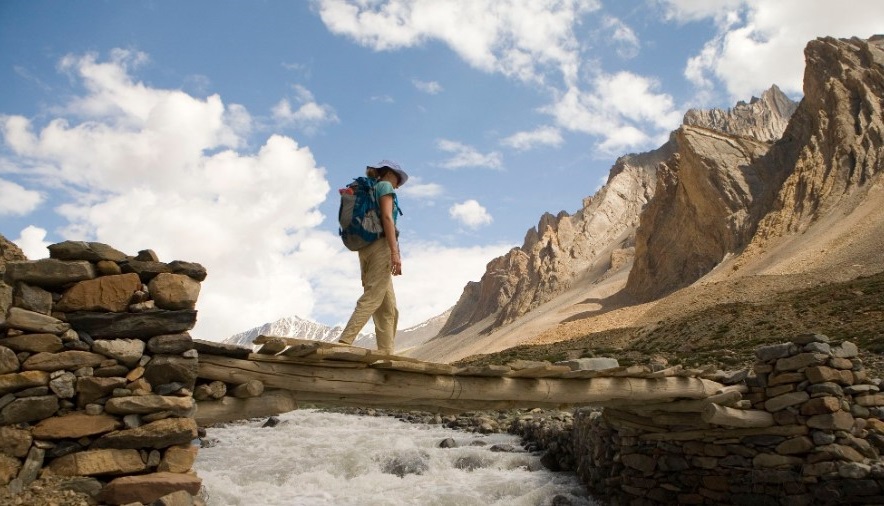
Planning a Best Cultural Travel Destinations adventure is an exciting endeavor that requires thoughtful preparation to ensure a smooth and enriching experience. Here’s a step-by-step guide to help you plan your journey:
1. Define Your Cultural Travel Goals:
- Start by determining your objectives. What aspects of culture are you most interested in? History, art, cuisine, festivals, or a combination?
- Set a clear purpose for your trip, such as learning about a specific culture or exploring a particular region.
2. Choose Your Destination:
- Research potential destinations that align with your cultural interests.
- Consider factors like budget, safety, climate, and accessibility.
- Create a shortlist of destinations that pique your curiosity.
3. Conduct in-depth research:
- Dive into research about your chosen destination(s).
- Study the history, culture, customs, and traditions of the region.
- Identify cultural events, festivals, and local attractions that align with your interests.
4. Create a Travel Itinerary:
- Plan a rough itinerary outlining your travel dates, destinations, and major cultural sites you wish to visit.
- Be flexible to accommodate spontaneous discoveries along the way.
5. Budget Planning:
- Determine your budget for the trip, considering expenses such as flights, accommodation, food, activities, and souvenirs.
- Allocate funds for unexpected expenses or emergencies.
6. Booking Essentials:
- Book your flights and accommodations well in advance to secure the best deals.
- Research accommodation options, considering factors like location, price, and reviews.
- Confirm any necessary visas and travel insurance.
7. Cultural Etiquette and Language:
- Learn about local customs, etiquette, and taboos to show respect for the host culture.
- Familiarize yourself with basic local phrases to facilitate communication.
8. Packing wisely:
- Make a packing list tailored to your destination and activities.
- Pack versatile clothing suitable for the local climate and culture.
- Include essential items like travel documents, medications, adapters, and a travel journal.
9. Health Precautions:
- Consult a healthcare professional for any required vaccinations or health precautions for your destination.
- Carry a basic first aid kit and any necessary medications.
10. Cultural Engagement: Seek out cultural experiences and activities that align with your interests. Attend local festivals, visit museums, and explore historical sites. – Interact with locals, ask questions, and immerse yourself in the community.
11. Travel Responsibly: Respect the environment and cultural sites by following responsible travel practices. Support local artisans and businesses by purchasing authentic souvenirs.
12. Capture Memories: Document your cultural adventure through photography, journaling, or blogging. Collect mementos and keepsakes to cherish the memories.
13. Stay Safe: Stay vigilant and aware of your surroundings. Keep your belongings secure and be cautious in unfamiliar environments.
14. Be open-minded: embrace the unknown and be open to cultural differences. Engage in conversations with locals to gain deeper insights into their way of life.
15. Reflect and Share: After your cultural adventure, take time to reflect on your experiences and lessons learned. – Share your journey with friends and family, and consider ways to continue supporting and learning about the culture you encountered.
By following these methods and steps, you can plan a Best Cultural Travel Destinations adventure that not only satisfies your curiosity but also enriches your understanding of the world’s diverse cultures. Remember that the journey itself is as valuable as the destination, and cultural adventures often lead to lifelong memories and personal growth.
Certainly! Here’s a table summarizing the key sections of the articles created:
| Article Title | Description |
| Introduction | Introducing cultural travel, its significance, and the primary keyword “Best Cultural Travel Destinations.” |
| Why Cultural Travel Matters | Exploring the importance of cultural travel in broadening horizons, offering enriching experiences, and the keyword “Best Places To Travel For Cultural Experience.” |
| Best Places To Travel For Culture | Highlighting the diversity of cultural experiences globally, mentioning specific countries and regions, and the keyword “Best Places To Travel For Culture.” |
| Europe: A Cultural Haven | Exploring Europe’s cultural treasures, iconic destinations like Paris, Florence, and Barcelona, and the keyword “Best Places To Travel For History And Culture.” |
| Asia: Where Tradition Meets Modernity | Diving into Asia’s vibrant culture, featuring destinations like Kyoto, Jaipur, and Beijing, and the keyword “Best Places To Travel For History And Culture.” |
| South America: A Tapestry of Traditions | Uncovering South America’s rich tapestry of cultures, highlighting destinations like Cusco, Salvador, and Buenos Aires, and the keyword “Best Places To Travel For History And Culture.” |
| How to Immerse Yourself | Providing tips on immersing in local culture during travel, including attending festivals, trying local cuisine, and interacting with locals. |
| Required Materials | Listing essential items and documents for cultural travel, such as a guidebook, comfortable clothing, and a camera. |
| Is It Possible to Travel Safely? | Addressing safety concerns related to cultural travel, mentioning travel insurance and safety precautions, and emphasizing the importance of staying informed about local customs and laws. |
| Can You Travel on a Budget? | Offering budget-friendly travel tips for cultural enthusiasts, discussing options like hostels, public transportation, and affordable dining. |
| Why You Should Prioritize Cultural Travel | Highlighting the personal growth and unique experiences cultural travel offers, discussing how it fosters open-mindedness and tolerance. |
| Ways to Preserve Cultural Heritage | Exploring the importance of preserving cultural heritage, mentioning organizations and initiatives dedicated to cultural conservation. |
| Methods to Plan Your Cultural Adventure | Providing a step-by-step guide to planning a cultural travel adventure, including research, booking, and packing tips. |
This table summarizes the main topics covered in each article, making it easier to navigate and reference the content.
Here are FAQs and answers based on the articles provided:
FAQs for Best Cultural Travel Destinations:
Q1. What is cultural travel, and why is it significant?
- Cultural travel is a type of travel that focuses on exploring and immersing oneself in the culture, traditions, history, and heritage of a destination. It is significant because it offers a deeper understanding of the world’s diversity, promotes personal growth, and fosters empathy and tolerance.
Q2. How can I ensure safety during cultural travel?
- Safety during cultural travel can be ensured by purchasing comprehensive travel insurance, researching your destination’s safety, staying informed about local customs and laws, and practicing common-sense precautions.
Q3. Are there budget-friendly options for cultural travel?
- Yes, there are budget-friendly options for cultural travel. You can choose affordable destinations, use public transportation, stay in hostels, and dine at local eateries to keep costs down.
Q4. How can I immerse myself in the local culture during travel?
- You can immerse yourself in the local culture by attending festivals, trying local cuisine, learning basic local phrases, taking part in workshops and classes, exploring off-the-beaten-path places, and engaging with locals.
Q5. What organizations are dedicated to preserving cultural heritage?
- Organizations like UNESCO, the National Trust for Historic Preservation, ICOM, and various archaeological and historical societies are dedicated to preserving cultural heritage worldwide.
Q6. Why should I prioritize Best Cultural Travel Destinations?
- Prioritizing Best Cultural Travel Destinations is essential because it promotes personal growth, fosters open-mindedness and tolerance, broadens horizons, and allows you to connect with the rich tapestry of human culture.
Q7. How do I plan a Best Cultural Travel Destinations adventure?
- Planning a Best Cultural Travel Destinations adventure involves defining your goals, choosing a destination, conducting research, creating an itinerary, budget planning, booking essentials, packing wisely, engaging with the culture, and staying safe.
Q8. What are the essential items to pack for cultural travel?
- Essential items to pack for cultural travel include your passport, travel insurance, guidebook, comfortable clothing, adapters and chargers, first aid kit, language guide, travel backpack, and personal hygiene items.
Q9. How can I contribute to the preservation of cultural heritage?
- You can contribute to the preservation of cultural heritage by respecting local customs and traditions, supporting local artisans and businesses, practicing responsible tourism, and staying informed about the significance of cultural heritage.
Q10. What are some unique cultural travel experiences?
- Unique cultural travel experiences can include attending local festivals and ceremonies, participating in traditional workshops, exploring historical sites, interacting with indigenous communities, and trying authentic local cuisine.
These FAQs and answers provide insights into various aspects of cultural travel, from its significance to practical tips and preservation efforts.
Conclusion: Embracing the World through Best Cultural Travel Destinations
Best Cultural Travel Destinations is a remarkable journey that transcends mere tourism; it’s a pathway to deeper understanding, personal growth, and the celebration of the world’s rich tapestry of cultures. In this series of articles, we’ve explored the multifaceted facets of cultural travel, offering insights, tips, and inspiration for those eager to embark on their own adventures.
From the introduction, where we highlighted the significance of cultural travel, to the exploration of diverse destinations across Europe, Asia, and South America, we’ve underscored the importance of immersing oneself in the cultural riches of our world. Cultural travel matters because it fosters open-mindedness, broadens horizons, and connects us to the shared history of humanity.
We delved into practical aspects, such as budget-friendly travel tips and the essential items to pack, demonstrating that cultural travel is accessible to all, regardless of budget constraints. By prioritizing cultural travel, we not only enrich our lives but also become more empathetic global citizens.
Safety considerations, including the importance of travel insurance and respect for local customs and laws, were addressed, emphasizing that responsible travel is key to preserving cultural heritage. We explored the organizations and initiatives dedicated to safeguarding cultural treasures, recognizing that cultural heritage is not just a matter of the past; it’s a legacy for future generations.
The methods provided for planning a cultural adventure offer a structured approach to ensure a fulfilling and enriching experience. These include research, budget planning, cultural engagement, and responsible travel practices.
In conclusion, Best Cultural Travel Destinations is a profound journey of self-discovery, empathy, and appreciation for the world’s diversity. It is an investment in personal growth, tolerance, and global awareness. So, whether you’re wandering the historic streets of Europe, savoring street food in Asia, or dancing to the rhythms of South America, cultural travel invites you to embrace the beauty of our shared human heritage. It is an invitation to learn, explore, and celebrate the world’s cultures, one adventure at a time.
Read more :
11 THE BEST PLACES TO TRAVEL FOR CULTURAL EXPERIENCE: UNVEILING THE WORLD’S CULTURAL TREASURES
11 THE BEST PLACES TO TRAVEL FOR CULTURE: A GLOBAL EXPLORATION
11 THE BEST PLACES TO TRAVEL FOR HISTORY AND CULTURE: A JOURNEY THROUGH TIME
More about CULTURE

